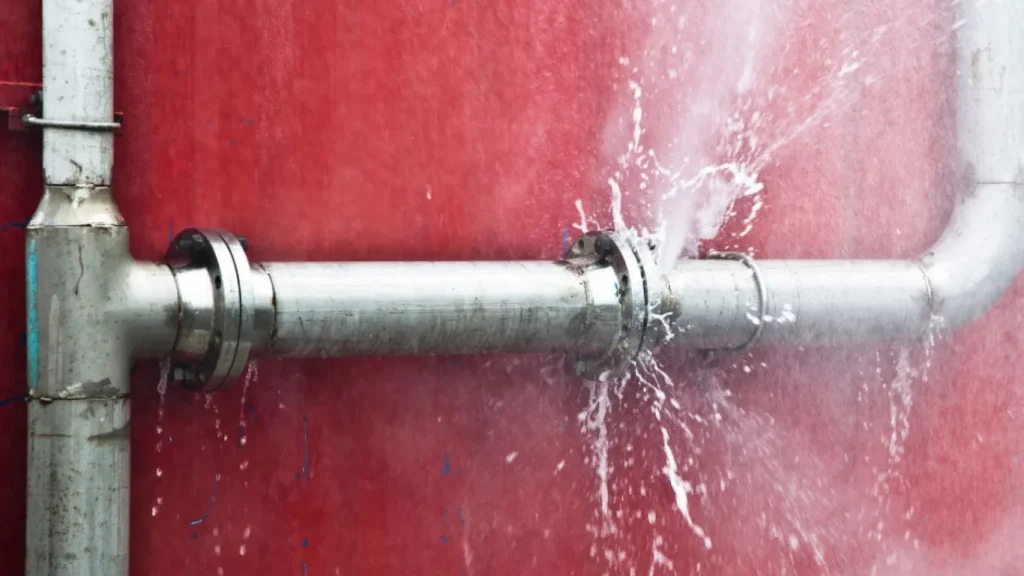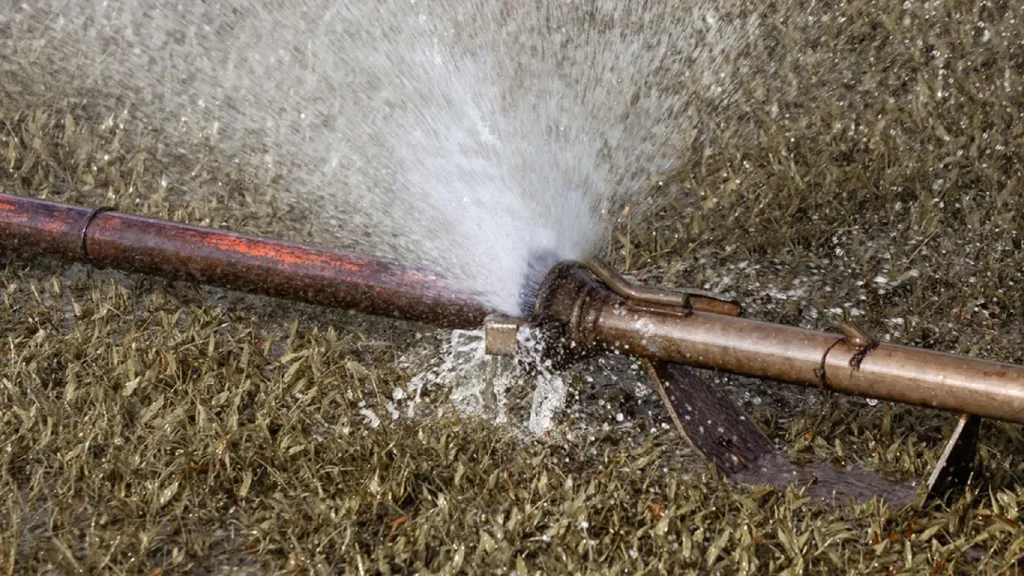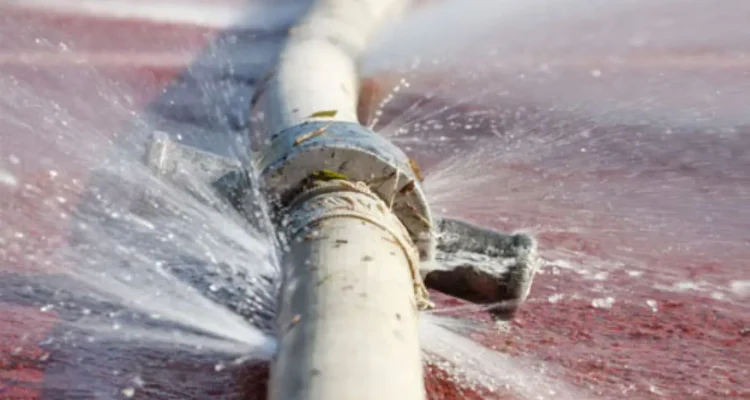What Causes a Pipe to Burst in Summer?
When we think of pipe bursts, we often imagine the frigid winter months. But, did you know that summer can be just as treacherous for your plumbing system? The blazing heat of summer and increased water demand can cause pipes to burst unexpectedly, leading to costly repairs and water damage. Let’s dive into the factors behind summer pipe bursts and how you can prevent them.

Common Causes of Pipe Bursts in Summer
Increased Water Pressure
Summer often brings with it an uptick in water usage. Think about it—more people are filling up swimming pools, watering their gardens, and using sprinklers to keep the lawn green. This increase in water demand can raise the water pressure in your pipes, pushing them beyond their limit. If the pipes are old, weak, or poorly maintained, they might not handle the stress, leading to a sudden burst.
Ground Movement Due to Heat
In regions where summer heat is extreme, the ground surrounding underground pipes can shift. This is particularly common in areas with expansive soils—soils that swell when wet and contract when dry. During prolonged heatwaves, the ground dries out and shrinks, which can cause pipes to shift or crack. Older pipes, or those made of weaker materials, are especially susceptible to this kind of damage.
Thermal Expansion
Pipes, like most materials, expand when heated. As temperatures soar in summer, the heat causes the pipes to expand, especially those exposed to direct sunlight or high temperatures. If there’s no room for the pipes to expand (due to improper installation or lack of insulation), they can crack or burst under the pressure. Metal pipes are particularly at risk, though plastic pipes can also be affected if exposed to extreme heat for long periods.
Environmental Factors Contributing to Pipe Bursts
Hot Weather Impact on Soil and Foundations
When the ground around pipes heats up, it can lead to significant stress on plumbing systems. Expanding soil can press against the pipes, especially if they were not installed with sufficient space for expansion. On the other hand, dry soil can erode around pipes, leaving them exposed and vulnerable to cracking from even slight movements.
Tree Roots and Pipe Damage in Summer
Another major concern during the summer is the increased growth of tree roots. Trees instinctively search for water sources, especially when the ground is dry. Roots can infiltrate small cracks in pipes, expanding over time and causing pipe breakage or complete blockage. If left unchecked, this root intrusion can lead to significant leaks and burst pipes.
Pipe Material and Its Susceptibility to Summer Bursts
Metal Pipes
Metal pipes, especially older ones, are more prone to bursts in summer. Metal conducts heat, and prolonged exposure to high temperatures can weaken the material, making it more susceptible to cracks and leaks.
PVC and Plastic Pipes
While plastic pipes are generally more flexible, they’re not immune to summer-related bursts. PVC pipes, for example, can degrade over time when exposed to UV radiation from the sun. This can make them brittle, increasing the likelihood of them breaking under pressure.
Age of Pipes and Their Condition
Older pipes, regardless of their material, tend to be more vulnerable to bursts in the summer. Over time, wear and tear weaken the pipe structure, making them more susceptible to cracks, especially under the strain of heat and increased water usage.
Human Activities Leading to Pipe Bursts
Increased Water Usage During Summer
As mentioned earlier, summer activities often demand more water. Whether you’re filling up a pool, running the sprinkler, or using garden hoses, all of this extra water usage can put immense pressure on your home’s plumbing system.
Construction and Landscaping Projects
Summer is also prime time for construction and landscaping work. Unfortunately, accidental damage to underground pipes during digging or heavy equipment use is quite common. A simple mistake during a home improvement project can result in significant pipe damage, causing an unexpected burst.
How to Prevent Pipe Bursts in Summer
Regular Maintenance and Inspection
The best way to prevent pipe bursts is to stay on top of regular maintenance. Have a professional inspect your pipes at least once a year, especially before the summer heat sets in. They can detect potential weak points or signs of wear and tear that could lead to a burst.
Pressure Regulation
Consider installing pressure-reducing valves to prevent excess pressure from building up in your plumbing system. This can help ensure that your pipes are protected even when water usage peaks during the summer months.
Insulation and Proper Pipe Material Selection
While pipe insulation is often associated with winter protection, it can also help during the summer. Insulating exposed pipes can prevent them from expanding too much due to heat. Additionally, if you’re replacing old pipes, consider upgrading to materials better suited for extreme temperature changes.
What to Do When a Pipe Bursts in Summer
Immediate Actions to Take
If a pipe bursts, the first thing you should do is shut off the water supply to prevent further flooding. Next, contact a plumber as soon as possible to assess the damage and repair the pipe. In the meantime, try to remove as much water as possible from the area to prevent damage to your home.
Preventing Further Damage
Once the immediate crisis is handled, it’s essential to address any underlying causes of the burst. This could mean adjusting water pressure, improving pipe insulation, or even re-routing your plumbing system to avoid future damage.
FAQs
Can pipes burst from the heat alone?
Yes, extreme heat can cause pipes to expand, especially if they’re made of metal, which can lead to cracks and bursts if the pipes are not properly insulated or maintained.
Are metal or plastic pipes more likely to burst?
Both have their vulnerabilities. Metal pipes can weaken from heat conduction, while plastic pipes like PVC can degrade from UV exposure.
What should I do if I see signs of a potential burst pipe?
If you notice decreased water pressure, damp spots, or unusual sounds, it’s important to contact a plumber for an inspection before a burst occurs.
How can I detect a pipe burst early?
Signs include unusual water bills, water pooling in unexpected areas, and the sound of running water even when no fixtures are in use.
Does pipe insulation help during summer?
Yes, insulation helps prevent pipes from expanding excessively due to heat, reducing the risk of cracks or bursts.

Conclusion
While summer may seem like an odd time for pipe bursts, the combination of increased water usage, high temperatures, and environmental shifts can lead to significant damage. By understanding the common causes and taking preventive measures, you can protect your home from unexpected pipe bursts, ensuring your summer remains stress-free and dry.


Congratulation!